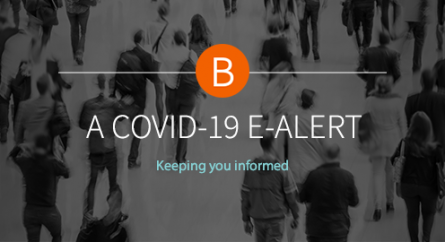Client Alert: CARES Act Retirement Plans – What Employers Need to Know
The CARES Act (Coronavirus Aid, Relief, and Economic Security Act), effective as of March 27, 2020, has several provisions aimed at making it easier for certain employees, the Act calls them Qualified Individuals, to get money out of their retirement plan accounts in larger amounts, pay less in taxes (depending), and with less paperwork if the virus, either directly because they or their families contracted the disease, or indirectly and they have suffered a loss of income.
HIGHLIGHTS
- “Coronavirus-Related Distributions” up to $100,000 get favorable tax treatment.
- Plan borrowing limits have been temporarily increased to the lesser of $100,000 or the entire vested balance of the qualifying worker’s account.
- Required Minimum Distributions (RMDs) are suspended for 2020.
We discuss each of these in more detail below. However, it is important for retirement plan sponsors to decide if they want to amend their plans to include these new benefits. They need not. If they do decide to add them, they have until 2022 to formally adopt the amendment, which, of course, must be retroactive to the implementation date. And most of these new rules are temporary, intended to help people out during the coronavirus crisis.
QUALIFIED INDIVIDUALS
Plan participants (1) who are diagnosed with the virus SARS–CoV–2 or with coronavirus disease 2019 (COVID–19) by a CDC-approved test (a Diagnosis), (2) whose spouses or dependents receive a Diagnosis or (3) who have negative financial consequences from being quarantined, furloughed or laid off, or, on account of a Diagnosis, have work hours reduced, are unable to work due to lack of child care, must close or reduce the hours of a business they own or operate, or other factors as determined by the Secretary of the Treasury. The employer may rely on the employee’s certification that they satisfy these conditions.
CORONA-RELATED DISTRIBUTION
Any distribution from an eligible retirement plan—401(k), 403(b), governmental 457(b)—or IRA made from January 1, 2020 through December 31, 2020 to a Qualified Individual. Distributions to any one Qualified Individual from all plans of an employer, including members of the controlled group, may not be greater in total than $100,000.
TAX TREATMENT OF CORONA-RELATED DISTRIBUTIONS
Elimination of the 10% early distribution penalty for participants who are under age 59½. No more 20% default income tax withholding generally applied to most plan distributions. If the employee repays the distribution within 3 years, taxation is avoided entirely and the distribution is treated like a roll-over distribution. Finally, if the distribution is not repaid, the employee can spread the income inclusion from the distribution over the 3-year period.
INCREASED PLAN LOAN LIMITS
For the 180-day period between March 27 and September 23, 2020, plans may (but need not) be amended to increase the maximum plan loan to $100,000 or 100% of a Qualified Individual’s plan account balance if the balance is less than $100,000. This is twice as much as has been permitted by law.
Any plan loans that were already outstanding as of March 27, that have repayments due in 2020 may have each of those 2020 payments delayed for a year. The loan with interest must be reamortized. The period when payments were delayed is disregarded when calculating the maximum 5-year term of the plan loan.
Plan amendments must be formally adopted on or before the last day of the first plan year beginning on or after January 1, 2022. So, for a calendar year plan, this amendment must be adopted no later than December 31, 2022 and it must be explicitly retroactive to the date on or before the first plan loan is made subject to these rules.
MINIMUM REQUIRED DISTRIBUTIONS: TEMPORARY WAIVER
For 401(k), 403(b), governmental 457(b), and individual retirement plans, most minimum required distributions (MRDs) are eliminated for calendar year 2020.
WHAT TO DO?
This is all happening at amazing speed with specific guidance from the IRS likely to come soon. We expect plan document providers to be reaching out their clients as soon as they feel they have enough information to offer amending language for their plans.
We recommend that you consult with your company’s benefits lawyer to discuss the opportunities and challenges presented by the CARES Act.
Categorized: Publications
Tagged In: CARES Act, employee benefits, retirement contributions








